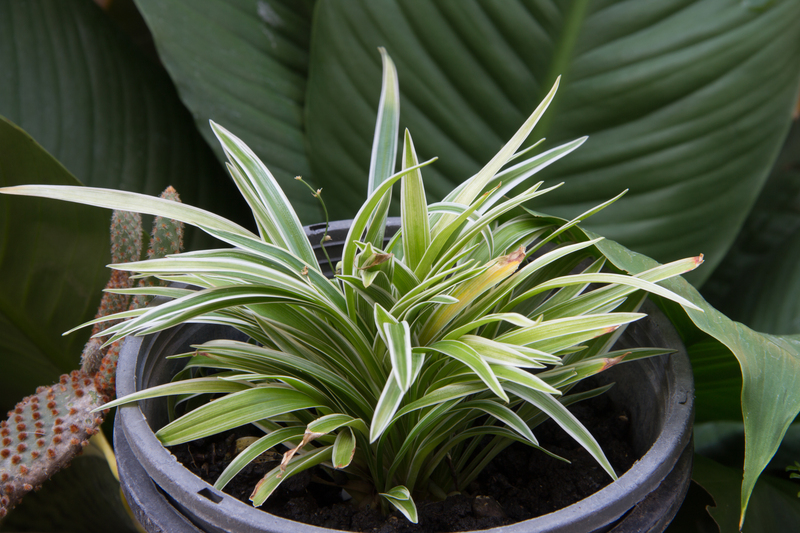Zen Garden Designs for a Harmonious Outdoor Sanctuary
Posted on 01/06/2025
Zen Garden Designs for a Harmonious Outdoor Sanctuary
Creating a peaceful and harmonious outdoor retreat is a timeless aspiration. In today's fast-paced world, cultivating tranquility within your personal environment can have profound effects on your well-being. Zen garden designs offer a wonderful opportunity to instill serenity and mindfulness into your outdoor space. In this comprehensive guide, we will delve into the origins, principles, and layout inspirations of Zen-inspired gardens, as well as practical tips and creative ideas to help you transform your yard into a harmonious outdoor sanctuary.
Understanding the Philosophy Behind Zen Gardens
The essence of a Zen garden lies in its creation of a serene ambiance that encourages contemplation and a sense of connection with nature. Rooted in Japanese culture, these gardens are also known as "karesansui", or dry landscape gardens. Rather than relying on lush greenery or elaborate flower arrangements, Zen-inspired landscapes embrace simplicity, minimalism, and natural beauty.
- Symbolism: Every element -- whether stone, sand, or shrub -- carries symbolic meaning reflecting elements of nature such as mountains, rivers, or islands.
- Mindfulness: Raking gravel, placing rocks, and tending to plants are meditative activities that nurture mindfulness and present-moment awareness.
- Harmony and Balance: Asymmetrical yet balanced arrangements reflect the imperfection and impermanence inherent in nature.
Benefits of a Zen Sanctuary at Home
A well-designed Zen outdoor sanctuary not only adds beauty and value to your property, but also provides personal benefits:
- Stress Reduction: Spending time in a harmonious garden reduces anxiety and promotes calmness.
- Increased Focus: Minimalist gardens free from distractions aid concentration and clarity of thought.
- Meditative Space: A Zen garden is an ideal retreat for yoga, meditation, or quiet reflection.

Key Elements of Zen Garden Designs
To craft an authentic Zen landscape, incorporate essential elements that represent natural forms and evoke peaceful energy. Here are the core components:
1. Rocks and Stones
Stones form the backbone of any classic Japanese rock garden. They symbolize mountains, islands, or animals, and their arrangement is intentional yet organic. Use groups of three or five for balance -- odd numbers are seen as more natural and dynamic. Select stones with interesting shapes or weathered textures, partially burying them to evoke a sense of age.
2. Gravel and Sand
An integral part of Zen layouts is the use of light-colored gravel or sand, raked into patterns that suggest water ripples or flowing rivers. This texture contrasts beautifully with still stones and plants. The act of raking sand can become a mindful daily ritual, allowing you to create different designs and clear your mind.
3. Minimalist Plantings
In Zen-style garden designs, plants are used sparingly and deliberately. Popular choices include:
- Moss: Provides lush green hues and soft textures, ideal for shaded corners.
- Bamboo: Represents flexibility and resilience, adding height and movement.
- Japanese Maple: Offers seasonal color and intricate leaf structure.
- Evergreen Shrubs: Such as boxwood or dwarf conifers, give year-round form and structure.
4. Water Features
While many Japanese Zen gardens use dry materials to symbolize water, you may introduce actual water elements for enhanced tranquility:
- Pebble Streams: Dry riverbeds created from smooth pebbles mimic the flow of streams.
- Reflecting Pools: Small ponds or bowls of water can mirror the sky and trees.
- Bamboo Fountains (Shishi Odoshi): Gentle trickling sounds enhance the peaceful vibe.
5. Pathways and Bridges
Guiding movement through your peaceful outdoor sanctuary is essential. Stone or stepping-stone pathways invite slow, mindful walking and contemplation. Simple, arched wooden bridges evoke the crossing between mundane and meditative spaces.
6. Ornaments and Accents
A few thoughtfully chosen ornaments can complete your harmonious design. Consider:
- Stone Lanterns: Symbolize wisdom and spiritual guidance.
- Buddha Statues or Pagodas: Add subtle spiritual symbolism, placed off the main path as a hidden feature.
- Wind Chimes: Gentle sounds further promote a soothing atmosphere.
Inspirational Zen Garden Design Ideas
Whether you have a small yard or a sprawling landscape, Zen garden layouts can be customized to fit any space. Let's explore a variety of harmonious design ideas:
Mini Zen Garden for Small Spaces
Urban dwellers and apartment owners can still experience the solace of a Zen retreat with compact gardens:
- Container Zen Gardens: Use shallow ceramic trays filled with sand, pebbles, and a couple of small stones. Perfect for a balcony or tabletop.
- Corner Zen Nooks: Convert an unused patio corner with a bamboo screen, a few rocks, and a moss carpet.
- Vertical Zen Walls: Hang living moss or vertical bamboo features for a serene backdrop.
Traditional Japanese Courtyard Garden
For homes with more space, recreate the tranquil mood of temple gardens:
- Karesansui Courtyard: Use a walled section with sand, large boulders, clipped pine, and a subtle stone lantern.
- Circular Raked Patterns: Design waves and concentric circles in a sea of gravel, with islands of lush foliage.
- Stepping Stones to Entry: Guide visitors through the garden to a simple bench or porch for meditation.
Modern Zen Garden Designs
If your taste leans more contemporary, infuse Zen elements with modern aesthetics:
- Clean Lines and Geometric Forms: Mix gravel with slick pavers and low, architectural plantings.
- Minimalist Water Bowls: Polished stone or concrete bowls with floating candles.
- Outdoor Living Integration: Seamlessly blend Zen features with patios, pergolas, or fire pits.
Family-Friendly Zen Retreat
Transform an outdoor area the entire family can enjoy:
- Safe Sand Pits: Section off a raked sand area for creative play and reflection.
- Interactive Water Features: Bubbling fountains attract birds and offer soothing sounds.
- Nesting Zones: Use low hedges or bamboo screening for private pockets within the garden.
Practical Design Tips for Your Zen Sanctuary
Bringing a Zen-inspired garden to life may seem daunting, but with careful planning and patience, your harmonious sanctuary will flourish. Here are actionable tips to guide you:
Assess Your Space
- Measure your garden and observe sunlight patterns.
- Note existing features and determine which can be incorporated or should be replaced.
- Identify suitable locations for focal points like boulders or water features.
Plan the Layout
- Create a rough sketch, outlining sand areas, stone placements, and planting zones.
- Arrange rocks before permanently setting them, viewing the layout from multiple angles.
- Allow open spaces ("ma") for balanced negative space that enhances mindfulness and calm.
Choose the Right Materials
- Source natural stones and gravel in neutral colors for authenticity.
- Select durable, low-maintenance plants suited to your climate.
- Opt for sustainable materials, such as bamboo, to echo the Zen philosophy of harmony with nature.
Incorporate Lighting
- Soft, indirect LED lights or lanterns can create a magical evening garden.
- Highlight focal points or cast subtle shadows to enhance the meditative mood.
Keep Up with Maintenance
- Regularly rake sand and gravel to maintain clean lines and encourage mindfulness.
- Trim plants and remove weeds to keep the appearance serene and uncluttered.
- Inspect and clean water features or ornaments to prevent algae or debris build-up.

FAQs about Zen Garden Design
What size should a Zen garden be?
A Zen-inspired sanctuary can be as small as a tabletop tray or as expansive as a full backyard -- design according to space, preference, and function.
Can I use a Zen garden in a modern landscape?
Absolutely. Zen elements complement modern styles beautifully; focus on clean lines, neutral palettes, and simplicity.
What are the best plants for Zen gardens?
Choose evergreens, moss, bamboo, and Japanese maples for authenticity, but adapt to your climate and personal taste.
Is it easy to maintain a Zen garden?
Compared to traditional gardens, Zen landscapes are lower-maintenance but do require regular upkeep, such as raking, pruning, and debris removal.
Conclusion: Bring Harmony Home with Zen Garden Designs
A harmonious outdoor sanctuary crafted using Zen garden designs provides a much-needed respite from modern life. By incorporating nature-inspired elements like stones, sand, water, and thoughtfully chosen plants, you invite peace and mindfulness into your daily routine. Whether you opt for a minimalist courtyard, a family-friendly retreat, or a modern landscape with Zen accents, your outdoor space can become a tranquil extension of your inner self.
Begin your journey today -- design your own Zen garden and enjoy the harmony it brings to your home and spirit.
Latest Posts
Vertical Gardening: A Fresh Perspective on Urban Greenery
Gardening Prowess and Pets: Tips for a Plant and Pup Paradise
Explore Vital Gardening Tools for Nature Lovers

